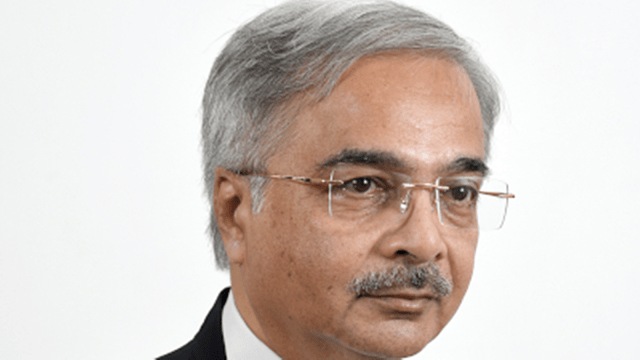SC Collegium recommends Gujarat HC judge N V Anjaria as CJ of Karnataka HC
Justice Anjaria was appointed as a Gujarat HC judge in November 2011 and made a permanent judge in September 2013.
 The Collegium, while recommending his appointment, has recorded in its resolution that he is a “competent judge with a sound knowledge of law and possesses impeccable integrity” and has "maintained the standard required of a person holding high judicial office”. (Source: Gujarat HC website)
The Collegium, while recommending his appointment, has recorded in its resolution that he is a “competent judge with a sound knowledge of law and possesses impeccable integrity” and has "maintained the standard required of a person holding high judicial office”. (Source: Gujarat HC website)The Supreme Court Collegium headed by Chief Justice of India (CJI) D Y Chandrachud on Wednesday recommended the appointment of Justice N V Anjaria of the Gujarat High Court as the Chief Justice (CJ) of Karnataka High Court.
The Karnataka HC CJ, P S Dinesh Kumar, is set to retire on February 24. The Collegium recommended that Justice Anjaria be appointed as the CJ of Karnataka High Court with effect from the date on which CJ P S Dinesh Kumar demits office.
Justice Anjaria was appointed as a Gujarat HC judge in November 2011 and made a permanent judge in September 2013. Born in Ahmedabad, Justice Anjaria has been standing counsel and panel advocate for Gujarat HC and subordinate courts, state election commission, Gujarat Information Commission, Gujarat Industrial Development Corporation and municipalities, among others.
The Collegium, while recommending his appointment, has recorded in its resolution that he is a “competent judge with a sound knowledge of law and possesses impeccable integrity” and has “maintained the standard required of a person holding high judicial office”.
Last March, Justice Anjaria had pulled up 13 accused policemen for filing “stereotyped affidavits” and asked them to have “respect for human rights”. He was hearing a contempt petition filed by members of the Muslim community, accusing the police personnel of publicly flogging them at Kheda in 2022.
In 2021, he had come to the rescue of a student from SVNIT after he failed to appear for his second semester examination in 2020 owing to “deteriorating mental health”. Widening the scope of medical illness to include depression and taking into account the “period of widespread despondence” during Covid-19, Justice Anjaria had ruled that “depression can be classified as serious illness”.
Last November, while hearing a service matter concerning former IPS officer Rahul Sharma, Justice Anjaria had suggested to the state and Centre to “not pursue the case only for the sake of keeping it pending”.
Sharma, during the 2002 Gujarat riots, was assisting the Ahmedabad Detection of Crime Branch in its probe into the Naroda Patiya and Naroda Gam cases and had collected call detail records from two private mobile service providers. The CDs, containing call records of politicians and bureaucrats, became public in 2004 after Sharma submitted them before the Nanavati Commission. The Gujarat government had chargesheeted him in 2011 on the ground that he should have submitted the CDs either in court or before the police.












